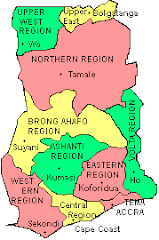To date, along side AEA’s, I’ve met with about 12 farmer groups to introduce myself and the AAB program. This week we’re hoping to meet with some groups to discuss where they are at in terms of what strengths and challenges they have, and which areas should we address? I’m hoping this will be a two way street where famer groups can express their concerns and opinions about which areas they would like to work on, and the AEA’s and I can also assess where the groups could use some support. To assist with this I held a meeting with 4 AEA’s I’m working with and we discussed how we should initiate this program. We agreed to start by filling out a document I provided (but didn’t create) called the “farmer group evaluation” in order to get some baseline info about the groups. Also, the first card is about group strengths and involves questions that will help assess where the group is at.
Directly following these initial farmer group meetings coming up this week, I’m planning to sit down with each AEA afterwards and get some feedback, or in other words discuss what went well, what didn’t, and how we can improve things for next time. I’m hoping we get into the habit of feedback and I’m planning to give praise when it’s due and offer suggestions to challenges. I’m lucky to have a great group of thoughtful people to work with, and I’m getting to know them more and more. It might seem like I’m focusing a lot on AEA’s and not impoverished farmers. It’s true. I am focusing on AEA’s. The reasoning behind this is sustainability, a word that’s thrown around a lot but to me it means something that’s long term and stable on its own.
EWB works with Mofa because Mofa will more than likely be around for a long time, and they’re in a good position to assist impoverished farmers. For too many years and in too many countries, including
In development language it’s called “capacity building” or “sustainable development” in parable lingo it’s the “give a man fish – teach a man to fish” story, but to me I’m here working with AEA’s to help them improve in different ways so they can help farmers work their way out of a cycle of poverty. Farmers know how to farm and AEA’s know their jobs, I’m just offering a different approach that EWB has developed with Mofa. It has worked in other districts and we’re hoping it will work here so farmers can live better lives. We’ve had some amazing volunteers and AEA’s pour their heart and soul into working with Mofa on this program and I’m lucky and proud to be a part of it. I’ll do my best to be accountable to the money raised which sent me here as well as the chapter and everyone supporting me, but most of all I’m trying to work hard and be accountable to the people working their way through poverty. Depending on how things go in this district there might even be another 3 month volunteer replacing me when I leave.
I’ll be sure to explain more in the near future and I’d be happy to read or answer and questions or comments on the work EWB is doing with Mofa, so if you’re interested then send me an email (brianvenne@ewb.ca) or post a comment and I’ll be sure to respond. Once I’ve been to a few more farmer group meetings I’ll start to take photos and post some as well.







